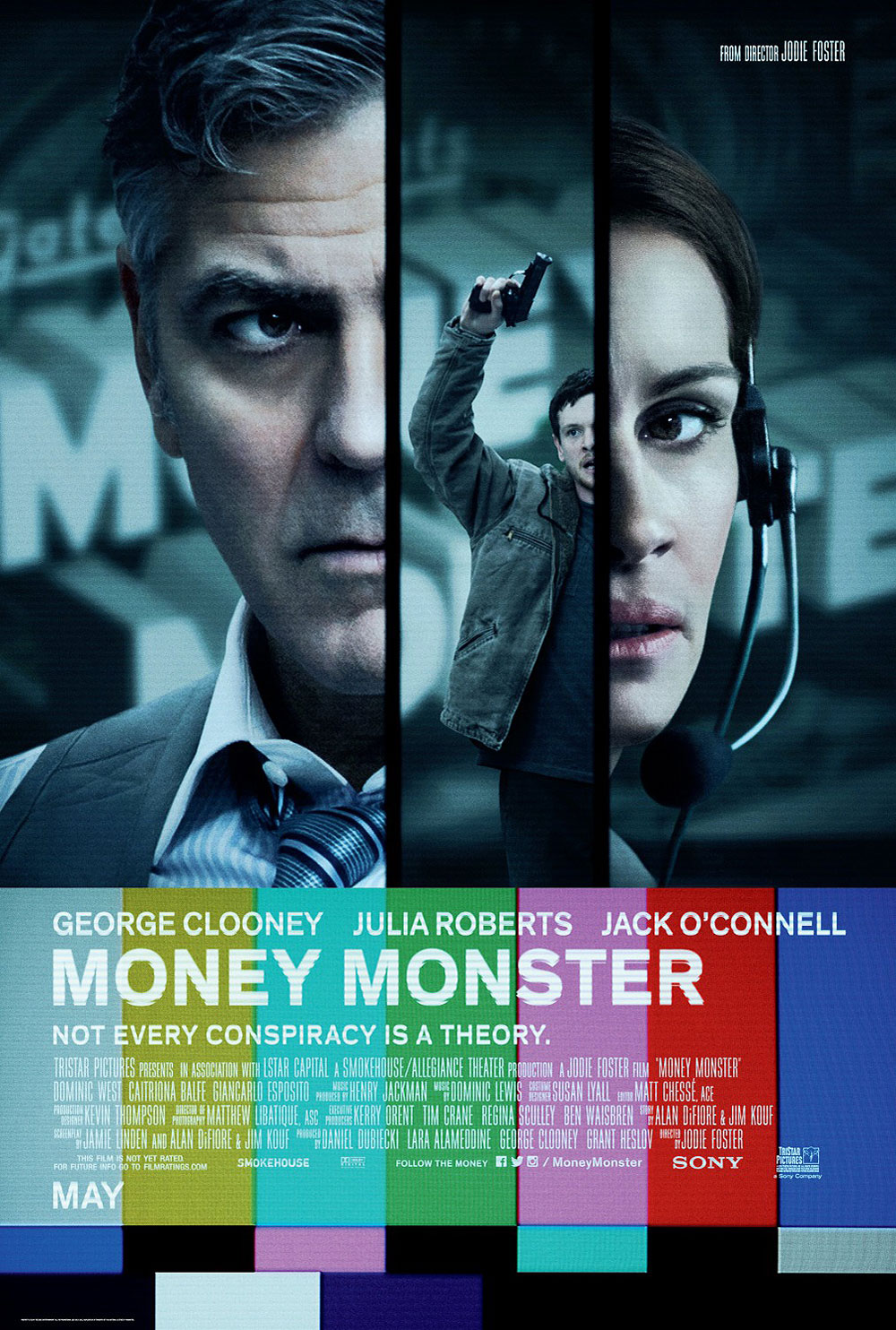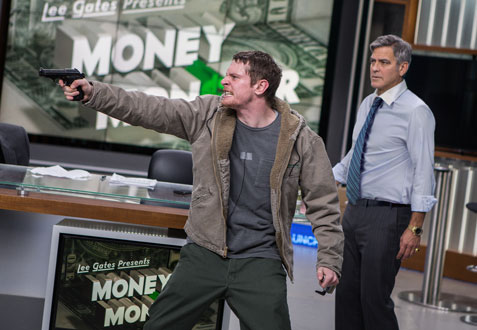
Jodie Foster‘s last directorial effort, the Mel Gibson-led drama “The Beaver,” is a slightly unconventional and often brutal movie. The film proved to be a commercial failure, but then again, it’s hardly a commercial movie. Whether or not it connected with audiences, there was an honesty to “The Beaver” that’s not always present in Foster’s latest feature, the real-time thriller “Money Monster.” Although it’s more of a conventional crowd-pleaser, the film fails to resonate as strongly as it should.
Lee Gates (George Clooney) is the loud, fast-talking host of “Money Monster,” a finance show in the same vein of “Mad Money.” One day, the show’s filming is interrupted when Kyle Budwell (Jack O’Connell) sneaks onto the set and holds Gates hostage at gunpoint. Kyle partially blames Gates for a bad stock tip that resulted in the loss of his life savings after Ibis Clear Capital inexplicably lost $800 million overnight. Nobody has answers, including Gates, and nobody is asking the important questions until Kyle shows up. With the help of his producer Patty Fenn (Julia Roberts), Gates will do everything he can to get to the bottom of what happened, re-discovering his humanity in the process.
That last line sounds cheesy, I know, and it slightly is in execution. It’s not because of the performances or directing, but because the script by Jamie Linden, Alan DiFiore and Jim Kouf is treading such familiar territory that character revelations and the big dramatic moments are sometimes more calculated than human. The script is refreshingly efficient — a story that’s cleanly under 100 minutes, especially during the summer, is always a blessing — but it’s almost always serving a formula. Every once in a while, like when Kyle talks to his wife, the story takes a surprising turn, only to find itself back on track towards an inevitable conclusion.
Strangely, there’s also a general lack of danger in “Money Monster.” For a film set mostly in one location and in real time, the stakes are hardly ever palpable, and it’s a serious tonal problem with the movie. The broad jokes frequently undermine the drama as well. In trying to inject some levity into the proceedings, the humor just creates a distance from Kyle and his predicament. The seriousness of the situation is often overshadowed by jokes that were possibly intended to make “Money Monster” appeal to a bigger audience.
Even a piece of product placement undermines the drama of Foster’s film. During the picture’s bleakest scene, Foster cuts to a Sony camera staring the frame dead in the eye. The idea is clear — there are men and women like Kyle in the audience — but in the moment, it plays as product placement with the Sony logo in full sight. Rarely does product placement actually impact a film to this extent. This sounds like a nitpick, and it’s a minor problem overall, but it’s just another instance of a dramatic scene not living up to its potential.
What’s most disappointing about “Money Monster” is that it’s actually a very well made and acted film. Both Clooney and O’Connell share some believable moments together, especially in one excellent, intimate two-shot from Foster where she slows the pace down a little to really let the characters open up more. The thriller isn’t without its moments, but they all add up to a tonally awkward and emotionally distant experience.
Related Posts
Posted in: Entertainment, Movie Reviews, Movies
Tags: George Clooney, Jack O'Connell, Jodie Foster, Julia Roberts
















